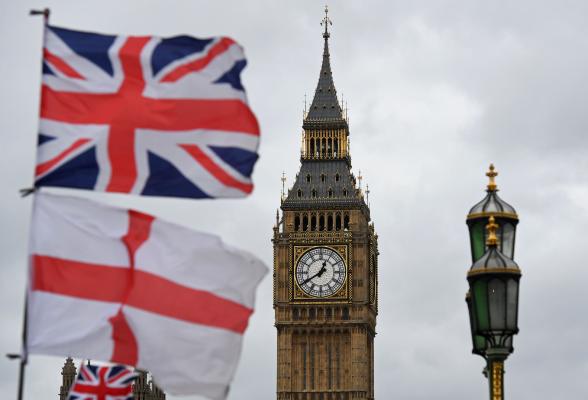One of Winston Churchill’s inspired quotes is: “The best argument against democracy is a five-minute conversation with the average voter”. How true this is in the light of the UK’s European Union membership referendum.
The ‘Leave’ campaign won the day thanks to a melange of intentional misrepresentations, racist and xenophobic scaremongering, attractive false promises, and flawed statistics. All these were more than capable of attracting a wide spectrum of British voters, ranging from the ultra-conservative racist and xenophobic Right to the traditionalist extremist semi-educated Labour Left concentrated in old industrial and mining heartlands.
The ‘Leave’ campaign was able to present to each section of the electorate either what would woo it or frighten it with no insignificant ‘help’ from populist Right-wing tabloids; and actually, it succeeded in achieving remarkable successes in England’s traditional industries’ urban centres and rural areas with a high percentage of pensioners, in addition to the old Labour strongholds of South Wales’ mining valleys.
On the other side, the pro-Europe ‘Remain’ campaign did well in London (around 60%), the great global cosmopolitan city, as well as the enlightened university cities such as Cambridge (around 74%), Oxford (more than 70%), Bristol, Manchester, York, Liverpool, Bath, Brighton, Winchester and Norwich. It also won in Scotland (around 62%) – more so in its capital Edinburgh scoring more than 74% – and in Northern Ireland (more than 55%).
Among the most striking examples of intentional misrepresentations and flawed statistics related to the UK’s contributions to the EU and what it gained in return. The facts are – based on 2014 official figures – the UK’s bill was £18 billion pounds, but in reality it only paid £13 billion while getting £5 billion in rebates, meaning it didn’t really pay more than £8.5 billion (after adjustments). Furthermore, this sum makes up no more than 1.2% of the country’s budget, dwarfed by 22% for social services, 19.7% for health, and 12.4% for education.
Add to the above, that the UK occupies the last but one rank among Western European countries per capita contributions table; as only Portugal pays less. This table is headed by Luxemburg, followed respectively by Sweden, Denmark, The Netherlands, Belgium, Finland, Germany, Austria, Ireland, France, Italy and Spain!
Also on misrepresentations, the ‘Leave’ campaign leaders – including Boris Johnson, a grandson of a Muslim Turk – warned of the ‘threat’ of immigration, asylum seekers, cheap labour from Eastern Europe, and Muslim Turkey’s ‘impending’ EU membership. However, the UK is not a ‘Schengen state’ and thus is not committed to ‘freedom of movement’ of immigrants and asylum seekers.
However, as regards cheap labour from Eastern Europe, these workers come, work and pay taxes; moreover it was the UK which spearheaded and incessantly fought to admit the former Warsaw Pact countries after the end of the Cold War and the collapse of the Berlin Wall. Then, under Margaret Thatcher, London was keen to undermine any chance of creating a ‘United States of Europe’ through diluting the influence of the six founding members, i.e. Germany, France, Italy, the Netherlands, Belgium and Luxemburg, and ensuring the union ties are loose and weak. It is ironic now that the country whose racists and xenophobes are the most vociferous against Eastern European workers was the most insistent on admitting their countries into the EU!
Another irony is that among the accusations the ‘Leave’ supporters levelled against the EU is that the UK was being ‘governed’ by Brussels’ ‘bureaucrats’, although the latter are appointed by democratically elected governments unlike giant business trusts, cartels and corporations. So, now that England has voted to leave while Scotland and Northern Ireland voted to remain, what logic could London use against the elected Edinburgh and Belfast ‘governments’ refusing to be governed by the ‘bureaucrats’ of London’?
On another level, the majority of younger voters voted to remain in the EU (around 73% in the 18-24 age group) while the majority of the ‘about 60 years old’ voted to leave. This is interesting since most of the tax payers who finance public services are from the productive younger voters, while most of the older ones do not pay into the system but still benefit from it. It is also worth mentioning that many of those are pensioners living in Europe, especially France, Spain and Portugal!
These are important details pertaining to the UK referendum; and although they may not mean much to readers in the Arab world, I believe one needs to look into the political dimensions, not only the living conditions, of the seismic change the referendum has caused.
The outcome has indeed discredited the Conservative and Labour leaderships that mishandled the referendum, and failed miserably to stem the tide of racism many of us thought was defeated by the election of Sadiq Khan as mayor of London. It may also mean that the UK is now paying a heavy price for underinvesting in its industrial base, relying instead on foreign investment thanks to its attractive financial services.
The fact of the matter is that this tide of racism is alive and well not only in the UK but also throughout Europe, as well as America and Australia. This why the six founder members of the EU reacted firmly to the referendum result; as they feel it would be impossible to allow racist parties – who, actually, hate each other – to build a single cross-borders mega ‘tactical’ alliance whose aim is to undermine co-existence, progress and moderation.
The six founder members find themselves responsible for rewriting the future vision and institutions of the EU, in order to protect it against blackmail and destruction. In turn, the UK faces a tricky period of self-appraisal after a suicidal referendum that has uncovered how inadequate its political leaderships are.
